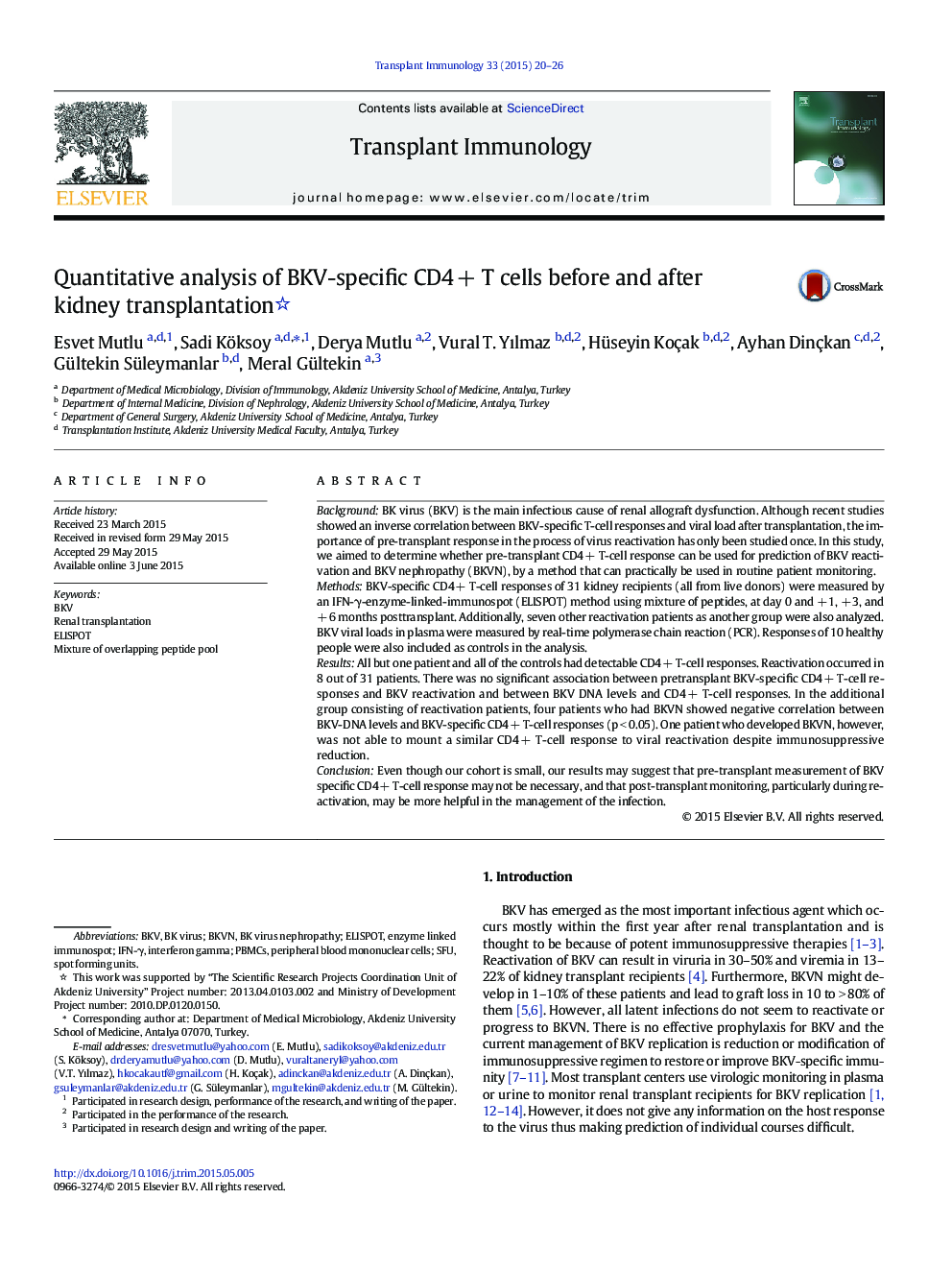| Article ID | Journal | Published Year | Pages | File Type |
|---|---|---|---|---|
| 3392047 | Transplant Immunology | 2015 | 7 Pages |
•BKV-specific CD4 + T-cell responses in kidney transplant recipients•BKV specific T cell quantitation by ELISPOT using mixture of peptide pools•No relation between pre-transplant BKV-specific CD4 + T cells and BKV reactivation•Longitudinal monitoring of recipients after BKV reactivation is important.
BackgroundBK virus (BKV) is the main infectious cause of renal allograft dysfunction. Although recent studies showed an inverse correlation between BKV-specific T-cell responses and viral load after transplantation, the importance of pre-transplant response in the process of virus reactivation has only been studied once. In this study, we aimed to determine whether pre-transplant CD4 + T-cell response can be used for prediction of BKV reactivation and BKV nephropathy (BKVN), by a method that can practically be used in routine patient monitoring.MethodsBKV-specific CD4 + T-cell responses of 31 kidney recipients (all from live donors) were measured by an IFN-γ-enzyme-linked-immunospot (ELISPOT) method using mixture of peptides, at day 0 and + 1, + 3, and + 6 months posttransplant. Additionally, seven other reactivation patients as another group were also analyzed. BKV viral loads in plasma were measured by real-time polymerase chain reaction (PCR). Responses of 10 healthy people were also included as controls in the analysis.ResultsAll but one patient and all of the controls had detectable CD4 + T-cell responses. Reactivation occurred in 8 out of 31 patients. There was no significant association between pretransplant BKV-specific CD4 + T-cell responses and BKV reactivation and between BKV DNA levels and CD4 + T-cell responses. In the additional group consisting of reactivation patients, four patients who had BKVN showed negative correlation between BKV-DNA levels and BKV-specific CD4 + T-cell responses (p < 0.05). One patient who developed BKVN, however, was not able to mount a similar CD4 + T-cell response to viral reactivation despite immunosuppressive reduction.ConclusionEven though our cohort is small, our results may suggest that pre-transplant measurement of BKV specific CD4 + T-cell response may not be necessary, and that post-transplant monitoring, particularly during reactivation, may be more helpful in the management of the infection.
Graphical abstractFigure optionsDownload full-size imageDownload as PowerPoint slide
